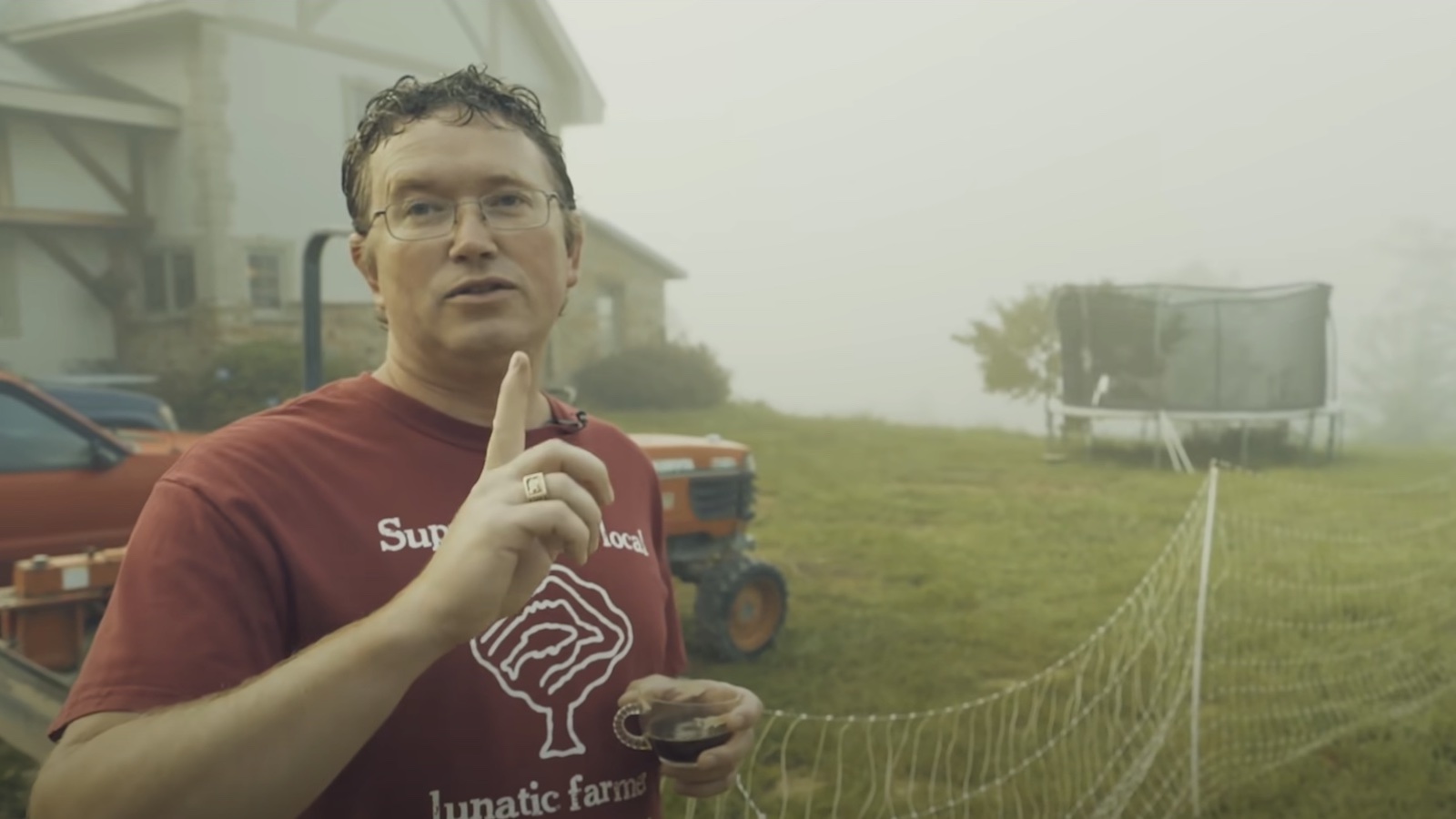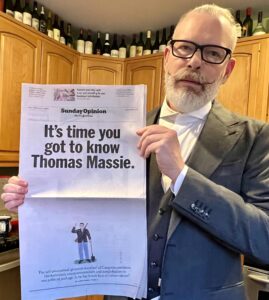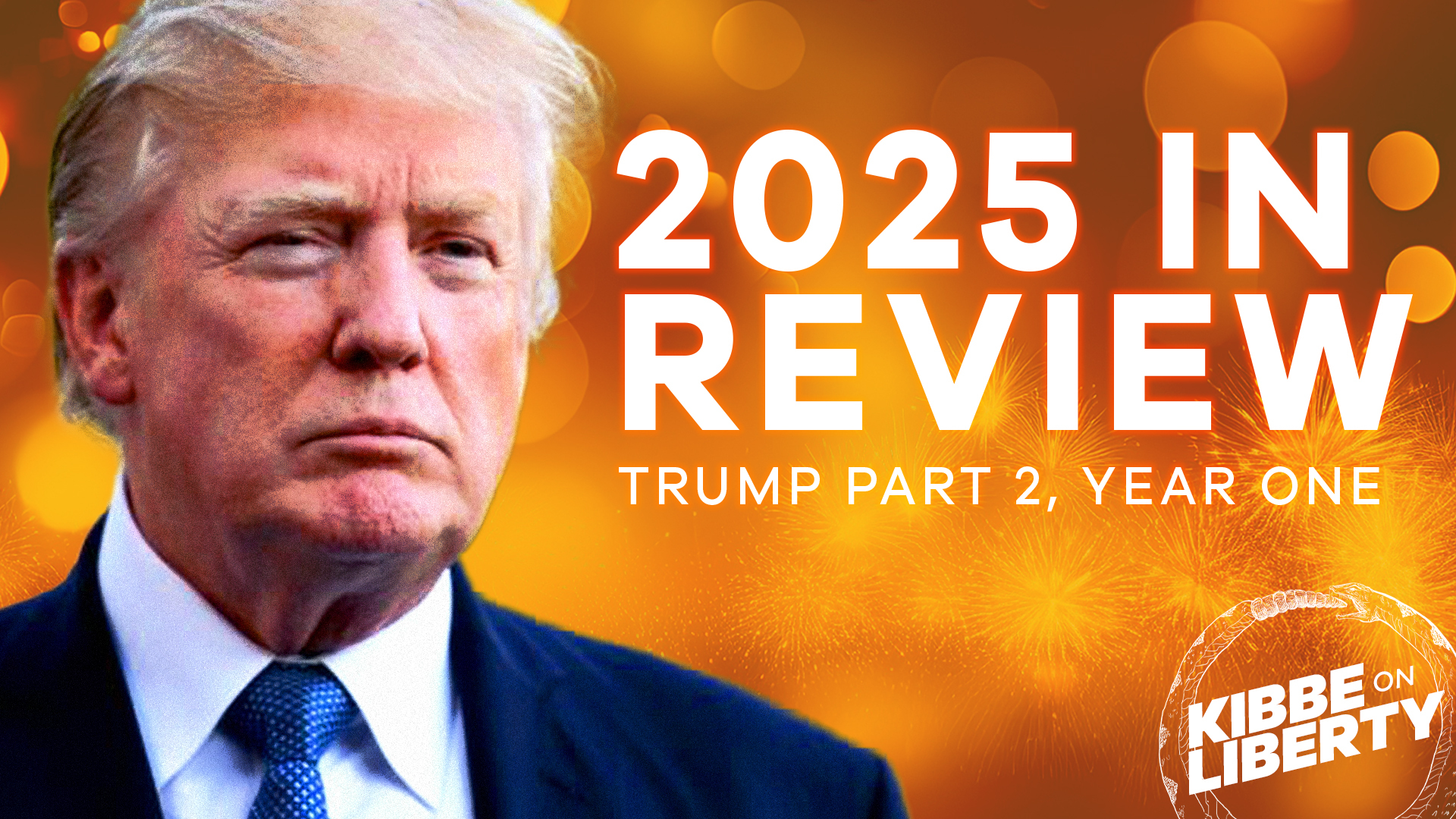
The Next Freedom Revolution
Did you ever expect the coming libertarian revolution to be announced in the New York Times?
Nope? Me neither.
But there it was, dominating the entire front page of the opinion section of Sunday’s print edition, a long think piece profiling the political philosophy of the liberty movement’s happiest warrior in Congress, Thomas Massie:
I encourage you to read it. It’s a surprisingly fair portrayal of the homespun libertarian values espoused by Thomas. Young people turned off by nationalism on the right and authoritarianism on the left are flocking to his ideas, and he may be, according to the author, “the future face of conservatism”:
 If you follow our work at Free the People, you already know that we are big fans of Thomas and his thoughtful, tireless defense of libertarian values. I couldn’t be happier about his burgeoning rock star stature with young people. But how does Thomas reach this broader audience? How did he break into popular culture beyond the angry tribalism of partisan politics? Because he is real, a gifted storyteller. And because he was willing to tell his story to us in Free the People’s award-winning documentary Off the Grid with Thomas Massie. That film has been slowly building steam online since we released it in 2018, becoming, according the New York Times, a cult classic that is turning a whole new generation on to a different world governed by self-reliance, responsible stewardship of the environment, a sense of community, and a deep distrust of big government and the crony corporations that feed off it.
If you follow our work at Free the People, you already know that we are big fans of Thomas and his thoughtful, tireless defense of libertarian values. I couldn’t be happier about his burgeoning rock star stature with young people. But how does Thomas reach this broader audience? How did he break into popular culture beyond the angry tribalism of partisan politics? Because he is real, a gifted storyteller. And because he was willing to tell his story to us in Free the People’s award-winning documentary Off the Grid with Thomas Massie. That film has been slowly building steam online since we released it in 2018, becoming, according the New York Times, a cult classic that is turning a whole new generation on to a different world governed by self-reliance, responsible stewardship of the environment, a sense of community, and a deep distrust of big government and the crony corporations that feed off it.
Indeed, the whole narrative—and surprisingly sympathetic tone—of this Times piece seems to have been lifted directly from Off the Grid. That’s precisely what we set out to do with our films: Reset, and redefine, the cultural narrative. The old rules of how to effectively communicate a message said that “earned” media, as in third party reporting, was always better than “paid” media advertising, because it is more credible. But what we do is “created” media, actually crafting the story as it should be told.
Terry Kibbe and I left FreedomWorks when we decided that the most effective work we could do was upstream of politics. The shift was fundamental: From influencing political outcomes to influencing the cultural narrative. If we do this well, we believe, we will redefine the parameters of what will be politically possible in the future.
Changing the cultural narrative is a tall order that takes time, and sometimes it is hard to know how to measure results. It’s far more than clicks and views. Off the Grid was our first documentary and it has been yielding social returns for years, slowly growing an organic audience. And it is working. After the Times piece hit, Thomas texted me: “The story, properly told, has been an annuity, not a one-time bump.”
Imagine what else we could do, together, with—again quoting the New York Times—”the money, influence, and institutional backing to help shift” the entire national conversation towards our shared values. Can you imagine the parameters of what might be politically possible then?
If you’ve never seen Off the Grid, check it out here. And here’s the Kibbe on Liberty podcast episode also quoted in the article. Thomas is one of my favorite guests, and if you watch some of his episodes on Kibbe on Liberty, you will see why his principles and his stories are so compelling to young people looking for better answers.



